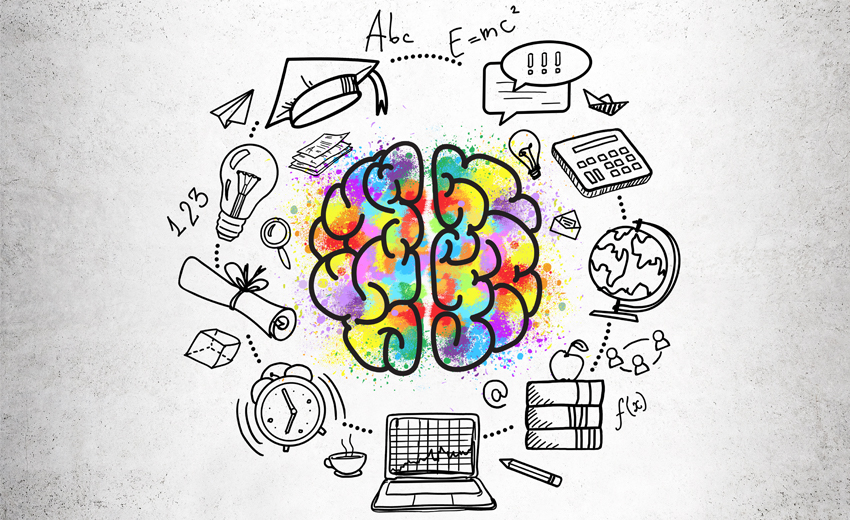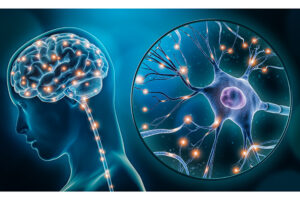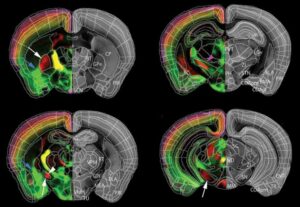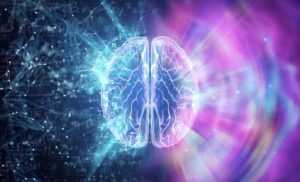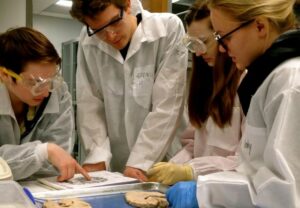We are constantly learning more about how our brain works. What is the most important thing to know about your brain? It’s not just an organ that you have, it’s also a part of who you are! Your experience of the world is shaped by what goes on in your brain, and understanding this can help us to better understand ourselves. In this blog post, we’re going to explore what neuroscience is all about and why it’s important for you to understand.
Contents
What Is Neuroscience?
Neuroscience is the study of how the nervous system works. The human brain contains approximately 100 billion neurons, also known as nerve cells. Each neuron has at least one axon that carries messages to other cells in your body or elsewhere within your nervous system.
Neurons can have up to thousands of connections with neighboring neurons, called synaptic contacts. These are the places where a neurotransmitter (chemical message) crosses from one cell into another and chemically alters its neighbor’s activity: this process is called synaptic transmission.
Synapses allow different regions of the brain to communicate with each other and they form circuits through which information flows between specific parts of our brains and ultimately, throughout our bodies actions such as walking or talking.
Synaptic connections change over time based on our experiences. This is known as plasticity and it allows us to form memories, for example.
Major Branches Of Neuroscience
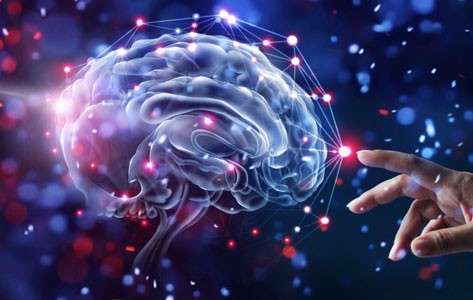
There are many different branches of neuroscience, but some of the most common ones include:
- Cellular and Molecular Neuroscience: This branch focuses on understanding how individual neurons function.
- Systems Neuroscience: This branch looks at how different parts of the brain work together to produce complex behaviors.
- Cognitive Neuroscience: This branch investigates how the brain enables cognition (thinking, learning, and remembering).
- Clinical Neuroscience: This branch examines how neurological disorders affect behavior and mental processes.
- Neurology: This branch focuses on the diagnosis and management of disorders that affect how our brains function.
- Behavioral Neuroscience: This is a combination of neuroscience, psychology, and biology in order to understand behavior.
- Psychology: This branch focuses on how our thoughts, feelings, and other aspects of behavior affect the way we live.
History Of Neuroscience
The history of neuroscience states that:
- Scientists don’t know exactly when the discovery of neuroscience began, but it may have been in Ancient Greece. That’s because Alcmaeon said that thought is based on your brain.
- The knowledge about how our brains work has come a long way since then.
- It wasn’t until recently that humans have been able to study living cells and tissues without harming them.
- This meant researchers could look at what happens inside an individual cell while they are still alive.
- Prior to this technology being developed, most scientific discoveries were made by studying dead tissue under microscopes- which limits us from learning much beyond structure and function.
- Neuroscientists use many different methods to study the brain including animal testing, imaging techniques that allow us to watch our brains at work in real-time and neuropsychological tests that look for changes or impairments in behavior.
How Neuroscience Help Us In Understanding The Mind And Brain?
It helps us in understanding the chemistry of the mind and brain in the following ways:
- The study of neuroscience has helped us to understand how our minds work.
- Neuroscience is important. It helps people understand who we are and what makes each person different from the others.
- Knowing more about how this amazing organ works can help you better appreciate your own life experiences and make sense of all that goes on in your head.
- Neuroscience can help create policies and laws that surround mental health care, addiction treatment, and education. This will help teachers and doctors provide better support to those in need while also reducing stigma around these issues.
- Some common disorders that neuroscientists are currently working towards understanding include schizophrenia, bipolar disorder, autism spectrum disorder, Alzheimer’s disease, Parkinson’s disease, and depression.
- Since neuroscience is such a vast field, we still have a lot to learn about the brain and how it works. However, with each new discovery, we come one step closer to understanding ourselves better as individuals and as a species.
Why Is It Important?
Neuroscience is important because:
- Neuroscience is important because it can provide insights into how we think and behave.
- Until recently, neuroscientists believed that the adult brain can not change; unable to change its structure or function after a certain point in adulthood.
- We now know that this isn’t true thanks to decades of research on plasticity- which shows us that our brains are built for adaptation and respond well when given new opportunities to learn and grow!
- This means neuroscience has become an exciting field with lots of potential benefits both inside and outside the lab.
- Such as: developing treatments for neurological disorders, learning more about mental health conditions like Alzheimer’s disease, Parkinson’s disease, depression, schizophrenia, bipolar disorder, and autism disorder.
- It also helps us understand the aging process and how we can stay mentally sharp as we grow older.
- Neuroscience is important because it helps us learn more about ourselves.
Criticism On Neuroscience
While neuroscience has a lot to offer, it’s not without its criticisms:
- One criticism of neuroscience is that much of the research is done on animals. Some people argue that this isn’t an accurate representation of how human brains work.
- Many neuroscientists start this job because they want to study the brain. They want to know more about it and they might not care about how it will affect mental health and wellbeing.
- Despite these criticisms, neuroscience remains one of the most fascinating and rapidly growing fields of science today.
What Neuroscience Cannot Do?
Neuroscience can not tell us everything, such as:
- Neuroscience cannot tell us everything about the brain and how it works.
- There are some things that we will never be able to know simply because they are too complex or mysterious for us to understand.
- This includes subjective experiences like emotions, thoughts, and feelings- which can only be understood by directly experiencing them oneself.
- We also won’t ever be able to fully understand consciousness- the state of being aware of one’s own thoughts and surroundings.
- While neuroscience can tell us a lot about how our brains work, there is still a lot we don’t know and may never know.
How To Become A Neuroscientist?
If you have an interest in becoming a neuroscientist, there are a few things you need to know.
- First of all, it’s important to have a strong background in biology and chemistry.
- You’ll also need to be good at problem-solving and critical thinking, as well as have excellent research skills.
- It’s also helpful to have some experience in lab work and data analysis.
- Neuroscience is the study of the brain. You will need to be good at solving problems and thinking critically, as much of it is based on experiments and data analysis.
- It’s also helpful to have experience in programming and statistical analysis.
- Finally, it’s important to be passionate about neuroscience and excited to learn more about the brain.
- Moreover, you can do undergraduate or graduate studies in neuroscience, or pursue a career in medical research.
- There are also many opportunities for training and development once you’ve entered the field.
- So if you have an interest in learning more about the brain and how it works, neuroscience is a great field to explore.
Conclusion
We know more about the brain. We know what it does and how it works. It is hard not to show interest in this new science. And with advances in technology like MRIs and PET scans, there are more opportunities than ever before for people looking to expand their knowledge of brain function through neuroscience studies.
If you are looking for affordable Online Counseling MantraCare can help: Book a trial therapy session
